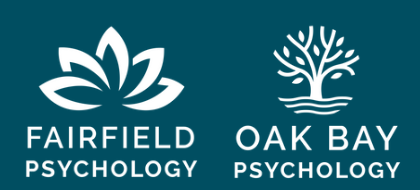
EMDR Therapy in Victoria, BC
EMDR Therapy
Adults and Teens 12+.
We offer EMDR (Eye Movement Desensitization and Reprocessing) therapy sessions for adults and teens aged 12 and older.
These sessions are available at both our Fairfield Psychology and Oak Bay Psychology locations, ensuring convenient access to support.
Rooted in trauma-informed therapy practices, EMDR therapy can address many different emotional challenges and symptoms.
Depending on your individual needs, the duration of therapy can be tailored to be short-term, medium-term, or long-term, ensuring that you receive the appropriate level of support.
All of our EMDR therapists are Master’s level practitioners or higher with a minimum of Level 1 and Level 2 EMDR training.
We’re here to help you on your journey to healing and self-discovery.
To learn more about EMDR Therapy and book a session, please read the FAQs below or click the button.
Women’s EMDR Wellness
We also offer Women’s EMDR Wellness Sessions, specially designed to support women aged 18 and older.
These trauma-informed EMDR therapy sessions focus on the unique challenges that women face, providing a safe and nurturing space for healing. Whether you’re dealing with anxiety, depression, trauma, or other challenges, our approach is tailored to meet your specific needs.
You can access these sessions at both our Fairfield Psychology and Oak Bay Psychology locations, making it convenient for you to find support.
Our goal is to help you discover the approach that resonates most with you, as you move towards wellness and self-discovery.
If you’re interested in learning more about our Women’s EMDR Wellness Sessions, please click the button or scroll down to check out the FAQs below.
We’re here to guide you and help you take the next steps toward a healthier you.
About EMDR Therapy
-
EMDR stands for “Eye Movement Desensitization and Reprocessing.”
EMDR therapy (Eye Movement Desensitization and Reprocessing) is an extensively researched and effective psychotherapy method.
EMDR is a structured therapy that encourages clients to briefly focus on the trauma memory while simultaneously experiencing bilateral stimulation (typically eye movements).
What is bilateral stimulation? It is back and forth stimulation (such as eye movements, tapping, auditory tones, etc.) that research shows can reduce vividness and emotions associated with the memories. It is designed to resolve unprocessed overwhelming and traumatic memories in the brain.
Unlike some other approaches, EMDR therapy does not require talking in detail about the distressing issue or completing homework between sessions.
For many clients, EMDR therapy can be completed in fewer sessions than other psychotherapies.
-
Yes. EMDR is a recognized treatment that has been extensively researched.
According to the EMDR International Association (EMDRIA), the American Psychiatric Association, the American Psychological Association, the International Society for Traumatic Stress Studies, National Alliance on Mental Illness, the Substance Abuse and Mental Health Services Administration, the U.K. National Institute for Health and Care Excellence, the U.S. Dept. of Veterans Affairs/Dept. of Defense, The Cochrane Database of Systematic Reviews, and the World Health Organization, among many other national and international organizations, recognize EMDR therapy as an effective treatment.
Specific information on treatment guidelines are available on EMDRIA’s EMDR and PTSD page.
-
During the first session, the counsellor and client will explore if EMDR therapy is a good fit for the client’s concerns. This initial session is an intake session and is 50-60 minutes in length.
Our goal is to help you find the approach that will best meet your needs.
For those clients where EMDR is a good fit, the client will typically work through the 8 phases of EMDR therapy with their counsellor. Attention will be given to a negative image, belief, emotion, and body sensation related to this event, and then to a positive belief that would indicate the issue was resolved.
While every person is different, EMDR processing can generally take 12-15 sessions or more, although this depends on the situation.
Short-term EMDR therapy focused on a single incident could take fewer sessions.
-
We offer two different options for booking EMDR individual counselling sessions:
Option #1: EMDR Therapy
We offer EMDR Therapy to all people (adults and youth 12+). These sessions are a great place to start if you are newer to, or returning to, counselling and interested in trying EMDR. These sessions may focus on “safety and stabilization,” “processing,” and “integration.” These EMDR Therapy sessions can range in length from short-, medium- and/or long-term therapy depending on the challenges, preferences, etc.
Option #2: Women’s EMDR Wellness Sessions
Women’s EMDR Wellness Sessions are available for women ages 18+. These sessions are primarily focused on the “processing” stage of treatment. They are intended for people who can already access their emotions and self-regulate but want to dig deeper. Sessions are offered as short-term EMDR therapy (generally up to 12-15 sessions). Click here to learn more.
-
1) EMDR Therapy:
To book at our Fairfield Psychology location, click here.
To book at Oak Bay Psychology location, click here.
2) Women’s EMDR Wellness Sessions
Click here to fill out our online form and get started. If you are existing client, please click here to book online.
-
EMDR therapy helps people of all ages. Practitioners use EMDR therapy to address a wide range of challenges:
*Anxiety, panic attacks, and phobias
*Chronic Illness and medical issues
*Depression and bipolar disorders
*Dissociative disorders
*Eating disorders
*Grief and loss
*Pain
*Performance anxiety
*Personality disorders
*Post-Traumatic Stress Disorder (PTSD) and other trauma and stress-related issues
*Sexual assault
*Sleep disturbance
*Substance abuse and addiction
*Violence and abuse
-
No. You do not need a major trauma in your life to be able to benefit from EMDR. Please see below for examples of who can benefit from EMDR therapy.
-
Absolutely. Anyone can experience overwhelming experiences or intense trauma. EMDR can help you process the impact of specific events - sometimes in as little as a couple of sessions, depending on the event.
-
Our brains have a natural way to recover from traumatic memories and events. This process involves communication between the amygdala (the alarm signal for stressful events), the hippocampus (which assists with learning, including memories about safety and danger), and the prefrontal cortex (which analyzes and controls behaviour and emotion). While many times traumatic experiences can be managed and resolved spontaneously, they may not be processed without help.
Stress responses are part of our natural fight, flight, or freeze instincts. When distress from a disturbing event remains, the upsetting images, thoughts, and emotions may create an overwhelming feeling of being back in that moment, or of being “frozen in time.” EMDR therapy helps the brain process these memories, and allows normal healing to resume. The experience is still remembered, but the fight, flight, or freeze response from the original event is resolved.
-
EMDR therapy is a mental health intervention. As such, it should only be offered by properly trained and licensed mental health clinicians. EMDRIA does not condone or support indiscriminate uses of EMDR therapy such as "do-it-yourself" virtual therapy.


